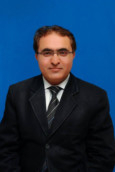
KICKER: Regulations
A crime cannot defeat another crime
The ‘Panama Papers’ leak of offshore financial schemes of the Panamanian law firm Mossack Fonseca shows that most of the world’s wealthy and powerful people, from heads of state, to Fifa officials and art industry holders are involved in incredible money-laundering and financial crimes.
Needless to say, the revelations would lead to a significant foreign investment reduction to the respective countries whose leaders have been exposed, while some famous football players might face a trial and even an end of their brilliant careers.
Yet, the leaks pose an even greater threat, which surprisingly the international media is silent about — the growth of uncontrolled drug trafficking and terrorism across the globe. When a country’s leader takes advantage of the national resources to grow his or her personal wealth, the country is doomed to be destroyed. That’s already happening in Iraq, Afghanistan, Pakistan and Syria.
Since the early 2000’s, the Syrian government has reduced its social benefits to its citizens. At the same time, by 2011, Bashar Al Assad’s first cousin Rami Makhlouf reportedly owned 60 per cent of the Syrian economy with his personal wealth worth of five billion dollars, raised through his offshore accounts created by Mossack Fonseca.
The corrupt government of Iraqi Prime Minister Haider Al Abadi is the answer as to why a better-equipped Iraqi army was never able to defeat Daesh in Mosul in 2014. Finally, the shameless corruption of Pakistani Prime Minister Nawaz Sharif, who was also named in the investigation is proof to the fact that terrorism remains uncontrolled in the country.
The challenges of the modern world will remain the same if nothing is done to prevent them. The efforts of international watchdogs to cut off money laundering schemes of global banks and law companies will be worthless unless the system of the world’s beneficial ownership opens to tax collecting organisations and the public.
From Ms Olga Malek
Writer based in the US
KICKER: Injustice
It was not a surprise
It is definitely not the end of secrets, but the beginning of it. The ‘Panama Papers’ leak, being one of the biggest leaks in history only shows what a corrupt world we live in and the fact that if there is will, there is way. Just because these people have been named and shamed now, doesn’t mean that it will stop them from continuing to engage in such activities. Yes, they might lay low for a while until the hype goes down, but throughout that time, they will figure out a new way to get around the system.
Once the documents were unveiled, global citizens took to various social media platforms to voice their opinions on the injustice of their fellow people, but are we really that surprised? The people who were named is not your neighbour next door, these are all well-known people, whether it is a president, actor or actress, football player or head of an organization. These are not regular people, and we all know that they sit on a massive amount of money, so why are we so surprised about this leak? By creating a massive online hype, aren’t we just giving these people more publicity than they actually deserve?
Having said that, I do not mean that money laundering is okay, but given the people that we are talking about, I am not at all surprised. However, when we talk about injustice and the fact that these people must take their responsibility by stepping up in court, do we honestly think that anyone would charge Russian President Vladimir Putin for example? It is an unfair world, and yes, justice is barely ever served but that is also not new to us. However, it was very surprising to note the resignation of Iceland’s Prime Minister Sigmunder David Gunlaugsson. That either shows that there is some sort of humanity left in this world and people who are willing to admit to their faults or was he simply just pressured to do so?
From Mr Mohanned A.M
Student based in Gothenburg
KICKER: Beneficial
Such leaks must continue
The ‘Panama Papers’ leaks has opened a pandora’s box. Its a great benefit of globalisation, and now, the general public have access to classified and unclassified documents as well. The world is now an open place and thanks to the one-world philosophy. Now, wealthy people, who have kept money of 90 per cent of the world’s struggling people is now out of box. However, the Panama leaks is just a ‘drop in the ocean’ of the richest people’s illegal money.
They kept their money in offshore companies because they did not want to pay taxes. Now, after this disclosure, how can Pakistani Prime Minister Nawaz Sharif ask the poorest nation to pay taxes, when he, himself doesn’t do it? From the poorest of the poor to well off people, all are regularly paying the burden of taxes, however, if the rich, who kept their money in offshore companies would pay taxes regularly, then there would be no need for the poor to carry the burden of taxes. In every budget, the Pakistani government keeps increasing the amount of money using different reasons, and meanwhile the sons and daughters of Pakistani PM as well as other politicians are keeping their money in offshore companies without paying a single penny?
Thanks to the team behind the ‘Panama Papers’ leak and the law firm Mossack Fonseca, now the world’s illegal money has reached the surface. Mostly, poor Asian countries and their people have suffered due to rich’s transfer of money from their own country to offshore tax exempted companies, but with this leak, that is hopefully the end of such activities.
This leak has allowed people around the globe to reap the fruits of a free media and one-world because there is no longer anything to hide. These type of leaks must continue so that maybe one day these people will realise their responsibility towards all segments of society.
From Mr Aijaz Ali Khuwaja
Development consultant based in Karachi, Pakistan
KICKER: Globalisation
More transparency yes, but this is not the end of secrets
A globalised world brings greater transparency, however, this does not mean the end of secrets. It is true that the integration of markets, politics, and values has created an interdependent world. Also true is the fact that online search engines make the Internet a gold mine of information, and historically-cheap means of communication (i.e. Skype) allow conference calls overseas for free. As a result, the International Consortium of Investigative Journalists (ICIJ) had the means to research the offshore activities of Mossack Fonseca, shedding light on how its super-rich customers hide away money.
In 1986, to the time when Mossack Fonseca was founded, nobody thought a virtual raid such as the ‘Panama Papers’ would ever be possible. Therefore, we are witnessing a cleansing process, creating awareness of what it means to live in a globalised world.
A feature of such a globalised world is the increasing importance of non-state actors. These provide the resources to make policies work and generate the necessary political will to set new agenda items. Following up with international efforts to end tax-secrecy, the ICIJ has taken efforts over a period of two years to research the aggressive tax avoidance techniques of the super-rich through offshore companies. Its transnational cooperation led to legitimate whistle blowing, thus informing state officials and the public about who is investing in such tax-oasis. The ‘Panama Papers’ have increased pressure on celebrities (Lionel Messi) and statesmen (Sigmundur Gunnlaugsson and David Cameron) alike. While these offshore companies are clearly unethical, they are not automatically illegal. Therefore, it is now to the public (prosecution) to decide which of them went too far.
However, does increased transparency lead to the end of secrets? The ‘Panama Papers’ are a good example why this is not the case. The independence of the ICIJ is questionable. With its headquarters in Washington D.C it is an offshoot of the Centre for Public Integrity, funded by George Soros’s Open Society Foundation, the Rockefeller Family Fund and the Ford Foundation. The latter has been linked to activities of the US Central Intelligence Agency (CIA), while the Open Society can be related to the United States Agency for International Development (USAID). If we agree to the fact that these institutions are unlikely to fund projects counterproductive to their mission, the bias of the ICIJ, and that of the ‘Panama Papers’, becomes an issue. It triggers questions as to why the ICIJ took two years to come forward? Why are 26,000 records not included in the leaked papers? Which names might have been withheld? If this is the biggest data leak in history, where are all the Americans? These are far too many open questions for an age of no secrecy, wouldn’t you agree?
From Mr Kai Bruns
Assistant professor in international relations based in Dubai
— Compiled by Donia Yassinson/Community Web Editor












